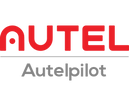The drone industry is rapidly evolving, taking drone pilots from simple amateur quadcopters to highly intelligent aircraft capable of near-autonomous flight. Today, powerful semi-autonomous drones have become essential tools for filmmakers, surveyors, rescue teams, and hobbyists seeking professional-grade performance without the need for a professional pilot.
DJI, Autel, and Skydio are leading companies in the drone space. Each brand is continuously pushing the boundaries of autonomy, imaging, and performance with advanced and powerful AI capabilities, enabling safer and more efficient operations. Let's delve into the key specifications, features, pros and cons, and practical applications of DJI vs. Autel vs. Skydio's semi-autonomous drones.
DJI: The Industry Leader with Balanced Autonomy
As the world's largest drone manufacturer, DJI focuses on robust ecosystem integration, setting the standard for both consumer and professional drones.
In consumer drones, semi-autonomy is reflected in obstacle avoidance and intelligent flight modes. For example, the DJI Mavic 3 Pro features omnidirectional perception, ActiveTrack, waypoint tracking, and focus.
In professional-grade drones, semi-autonomous capabilities are reflected in automated flight paths and real-time decision-making, such as pre-set flight paths and motion tracking. These features are ideal for content creators and professionals.

Autel: Reliability and Flexibility of Autonomous Flight
Autel Robotics has become one of DJI's strongest competitors, focusing on cost-effective flexibility and providing high-performance drones with fewer software restrictions.
Autel's focus is gradually shifting towards commercial drones, with advantages such as high-resolution cameras, long flight time, strong signal transmission range, and a flexible software ecosystem.
Autel's semi-autonomous flight features include dynamic tracking, 3D obstacle avoidance, and waypoint missions. The EVO MAX series also supports A-Mesh multi-control technology and triple anti-interference capabilities, offering significant advantages in photography, surveying, inspection, and public safety industries.

Skydio: Autonomous Flight First
Skydio, headquartered in the US, is renowned for its AI-powered autonomous flight, focusing on unparalleled autonomy and compliance. Today, there are few Skydio consumer drones, only Skydio commercial drones.
Skydio commercial drones offer significant advantages in obstacle avoidance, tracking targets in complex environments, and achieving flawless semi-autonomous flight capabilities. Skydio autonomous drones can map their surroundings in real time, making them leaders in autonomous navigation.

Best Drones for Semi-Autonomous Flight
Semi-autonomous modes for commercial drones primarily include waypoint navigation, AI-powered inspections, and obstacle avoidance. In the DJI vs. Autel vs. Skydio comparison, our top recommendations are the DJI Matrice 350 RTK, Autel Alpha, Autel EVO MAX 4T V2, and Skydio X10.
DJI Matrice 350 RTK: Launched in 2023, this modular and powerful product is suitable for inspection and mapping, and features enhanced video transmission and RTK payload options. Priced at approximately $10,000 to $15,000 (depending on payload), it's the ideal choice for mature operations.
The DJI Matrice 350 RTK semi-autonomous drone achieves centimeter-level accuracy for autonomous mapping and inspections. Its AI Spot-Check autofocus feature, precise positioning mode, and interchangeable payloads further enhance the drone's perception capabilities for real-time data acquisition.

Autel Alpha: Released in Q1 2025, the Alpha is Autel's industrial-grade, multi-purpose drone, emphasizing interference resistance and adaptability. Offering 560x hybrid zoom and priced at $19,289, the Autel Alpha semi-autonomous drone focuses on public safety and energy inspections, and supports an open SDK for custom integration.

Released in 2025, the Autel EVO MAX 4T V2 is an innovative semi-autonomous industrial drone. Its multi-sensor camera, combined with a laser rangefinder, provides 8K 10x lossless zoom. Priced at $8,999, it supports multiple payload swaps and third-party SDK integration, focusing on inspection, firefighting, public safety, and search and rescue.

Both the Autel Alpha and EVO Max series support A-Mesh technology, enabling inter-drone networking (without a public network) and a "single-control, multi-drone" model. SLAM navigation and adaptive frequency hopping effectively resist interference near power lines. The Autonomy Engine plans 3D paths through forests and buildings, and features hot-swappable batteries for seamless operation.
Skydio X10: Released in 2023, the Skydio X10 is a standard American-made drone. Equipped with the NVIDIA Jetson Orin AI chip, the Skydio X10 enables real-time 3D scanning and zero-light NightSense navigation. The Skydio X10's autonomous flight capabilities in adversarial environments are also impressive. It can automatically capture data and support multi-drone swarms for enhanced collaborative operations within a deep AI ecosystem. The Skydio X10 semi-autonomous drone starts at approximately $20,000.

Conclusion
In the development of semi-autonomous drones, DJI vs. Autel vs. Skydio: Drone manufacturers are continuously deepening their research into drone reliability, adaptability, and intelligence, making professional aerial operations more accessible than ever before.
In our view, DJI's proven scalable technology, Autel's smart economics, and Skydio's revolutionary autonomy make autonomous flight a great choice for simplifying aerial missions and maximizing efficiency. We recommend the Autel EVO MAX 4TV2 drone to further explore semi-autonomous drones.








